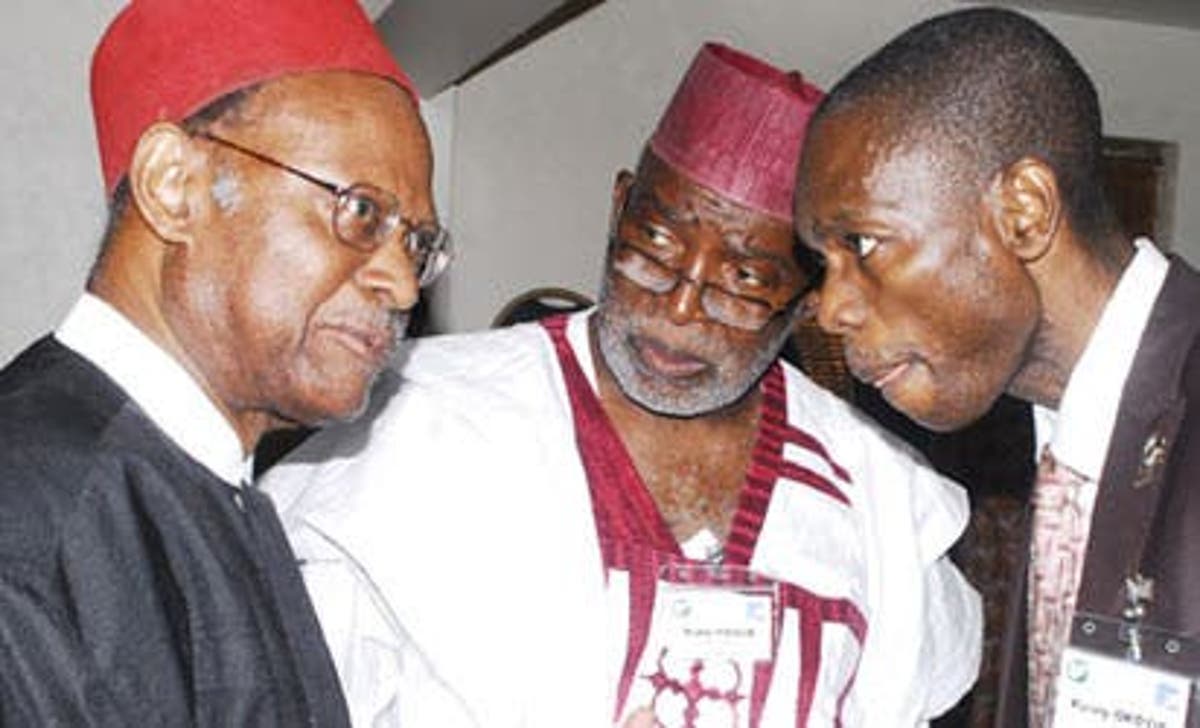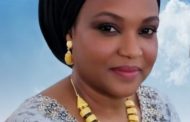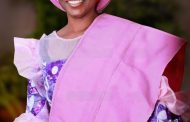Prof Hassan A. Saliu
In October 1951, a baby was born in the hilly town of Okene, Kogi State. One week after, he was given a name that was to be significant in Nigeria. The baby was Prof. Nuhu Yaqub.
A few years later, he was enrolled in a Quranic school called Nurul Islamic School, Okene, in 1959. He stayed in the school for six years before moving to the School for Arabic Studies in Kano. He also attended the Advanced Teachers’ College, Kano, before finally securing admission into the Bayero University, Kano.
These growing-up years were significant for our understanding of what Prof. Yaqub has become in life. His deep religious belief was cultivated early enough in his life. In quick succession, he attended two Islamic schools, both in Okene and Kano. Little surprise, no matter the circumstances, he will always observe his five daily prayers on time.
His attitude towards material acquisition can also be attributed to his Islamic upbringing. One other foundational issue was his active participation in students unionism during his school days. He served as the president of the Kwara State Students’ Union at Bayero University, Kano, between 1977 and 1978, after his stint as the Public Relations Officer of the student body at the Advanced Teachers’ College, Kano (1974-1975).
Not done with student unionism, he became the Secretary of the Nigerian Students’ Association at the University of Sussex, UK, where he obtained his doctoral degree in Development Studies in 1990. Not surprisingly, he was an active member of ASUU during his active working years. Indeed, he had the rare honour of serving as the branch chair of the union at the Usmanu Danfodiyo University, Sokoto, in later years. From his background sketched out above, he had given the indication of someone who was prepared from the beginning to play a major role in the educational system in Nigeria. This will be evident in the remaining part of this tribute.
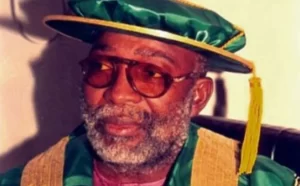
One of the few radical activists who became a Vice-Chancellor in Nigeria
Professor Nuhu Yaqub, 73, OFR, Fellow of Academy of International Affairs (AIA) and double Vice-Chancellor, is a Marxist scholar who is always proud to be associated with the ideological school. He is, however, a Marxist with a difference because like a few others, he pursues Marxism as a tool of analysis with a strong religious belief.
Universities and their issues dominate his adult life, rising to become Head of Department, Dean, and Deputy Vice-Chancellor at the Usmanu Danfodiyo University, Sokoto, before he became a substantive Vice-Chancellor in 2004. He has served as a Vice-Chancellor in two public universities in Nigeria.
From the discussions I have had with him, our universities are truly undergoing stress and trouble. These are evident from the kinds of stories that come out of the system in the recent time to the extent that decent persons are now avoiding leadership positions in Nigeria’s universities for their corrosive influence. More so, with the crisis of immense proportions that visits our universities. The processes of selection of Vice-Chancellors have become ‘’bole kaje’’ with the rules guiding them being stood on their head across campuses.
Cockroaches, termites, and others have invaded the system, turning everything upside down. While commending ASUU for its relentless struggles over the years for improvements in the system, it is my candid opinion that equal amount of effort and energy needs to be channeled towards resolving the internal contradictions in the system essentially bordering on governance issues and erosion of traditions and standards.
It seems to me that our union labours for some other persons to feed fat on the system. It is difficult to understand that even the inadequate resources that are being made available to public universities by governments are, for most times, not channeled to core academic matters. How much is the budget of an academic department in the system in real terms as opposed to on paper, vis-à-vis other budget heads? One would like to ask.
As a Vice-Chancellor in two universities, Prof. Yaqub naturally came under attack from the entrenched groups and students in these schools. The latter being instruments in the hands of entrenched groups who felt that he was an outsider VC who showed no tendency for primitive accumulation.
His problem was compounded at the University of Abuja by his religious teachings that are more discernible than from those who have used the instrumentality of religion to fool Nigerians. We do have cabals in our universities who always work to determine the course of things. They often raise money to corrupt the selection process and flaunt their connections to intimidate the system, all in an attempt to attain their political goals.
This twist of events, no doubt, calls for a reexamination of the concept of autonomy for universities in all its dimensions. It is just not working according to what the books say in terms of the selection process as there is too much corruption in the process.
Prof. Yaqub detests notorious politicians who parade themselves as scholars. They can play the religious card when it suits them in turning everything upside down in the system and lower standards for personal gain. Ironically, some of them regularly appear on the scene as saviours of the university system and they are being taken as such. They are simply not!
As VC of the University of Abuja from 2004-2009, his tenure was marked by significant developments. Four of these were:
(1) The relocation of the university to its permanent site, a development that many had considered impossible.
(2) The rapid development of new programmes that have made the university a choice institution, in addition to its strategic location.
(3) He entrenched a regime of prudent management of resources while he was the VC.
(4) He was a fund-raiser for the university development when he was in the saddle.
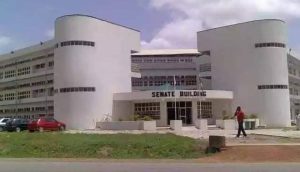
Prof Yaqub was here as VC
The situation of him being a rational leader was disliked by some elements who had been drenched in the old system, where the university enjoyed tremendous patronage but had little on ground to justify the huge inflow of resources to it. His attempt to develop an academic culture for the university was partially successful. The tradition of no academic culture had been sustained for too long for it to be erased completely within a tenure of five years.
Universities are thus like resource control for the academic politicians on the various campuses. This background set Prof. Yaqub on a collision course. He had a raw deal with some interests, including the Governing Council that made sure that the process of selecting a new Vice-Chancellor for the university was not concluded before the expiration of his tenure to deny him having any influence on his immediate successor.
Students unrest and demonstrations were noticed, but not as many as some other VCs witnessed during their times but on a few occasions inconvenient for all, especially Prof. Yaqub. He was somehow lucky to have concluded his term as the VC of the University of Abuja.
An independent investigation revealed that it was providence that got him appointed as the Vice-Chancellor of the University of Abuja. A series of events led to his appointment over two other candidates who had been rated above him. Consequently, the internal dynamics of the university were not favourable to him as he was considered an outsider who came to snatch what should ordinarily belong to an internal member of staff, some have argued. Before Abuja, he would have been the VC at the Unilorin in 2002 but the texture of the politics which showed a preference for an internal candidate who was highly favoured in Abuja made nonsense of his first position after the interview.
He was subsequently passed for the second candidate, Professor Shamshudeen Amali, who was eventually appointed as the Vice-Chancellor of the university. This came about after the reawakening of the sensitivity of the Chairman of the Governing Council, Lt. General Salihu Ibrahim, the author of Anything Goes in the Nigerian Army (1993) to the grand conspiracy to sacrifice some candidates in order to pave way for a particular candidate.
After realizing the game being played, General Ibrahim stopped their antics by halting the elimination game but not until two of the candidates had been sacrificed. His intervention made it possible for Professor Amali not to be also sacrificed on flimsy grounds. Their grouse against both Professors Yaqub and Abass from UNILAG was that they had no form of relationship with the university prior to that time. Council members who were against fair play and who were on a mission had asked ‘how such persons could become the VC of the university?
Prof. Yaqub was later appointed as the VC of Sokoto State University, Sokoto after his service at UNIABUJA. There too, some ugly occurrences took place but this time, the angle of the state dynamics epitomized by unfriendly state government was more of the issue that somehow halted his string of successes as a Vice- Chancellor in two notable Universities in Nigeria.
At the Sokoto State University, he continued with his reform stream. He made notable efforts to start the university on a sound footing, but the change of the political baton in the state truncated his reforms. He was nevertheless the magnet that attracted both students and staff to the university. He equally attracted resources to the young university from 2012-2017 when he was the VC.
I fondly refer to him as a career VC, as I always call Prof. Eghosa Osagie too who spent more than a decade as the VC of Igbinedon University, Okada. Prof. Yaqub has made significant contributions to the university system derived from his longevity of service and the opportunity of heading two universities in the country. A number of his publications are devoted to the travails of the system.
After his service as VC, he was engaged as the Dean of the Postgraduate School at Nile University, Abuja (2017-2019). Prof. Yaqub has served as a resource person to numerous bodies, including the National Institute for Policy and Strategic Studies, NIPSS, Kuru-Jos, Nigerian Defence Academy, Kaduna, National Defence College, Abuja, African Centre for Democratic Studies, Abuja, and others.
He has equally served as an external examiner to several academic departments, including University of Ilorin, Nnamdi Azikiwe University, Awka, University of Maiduguri, Bayero University, Kano (his alma mater), Police Academy, Wudil, University of Jos, the International Islamic University, Malaysia, and others. Prof. Yaqub has been a Professorial assessor for many universities. He has been a regular face in NUC’s accreditation teams to Nigerian Universities.
He has served in some administrative positions that include: ASUU’s committees (1982-1983); Chairman, ASUU, Usmanu Danfodiyo University, Sokoto (1983-1984); Secretary, National Caretaker Committee of the Social Democratic Party, SDP, (1992-1993); Member of several editorial boards; Executive Director, CRD, Kano (2003-2004); Member, International Observer Team to the Parliamentary Elections in Bangladesh (2008); Pioneer Chairman, Society for International Relations Awareness (2010-2020); and Chairman, Academic Board of the National Institute for Legislative and Democratic Studies, NILDS, Abuja (2019 to date).
He is a scholar who has supervised a considerable number of students at both undergraduate and postgraduate levels. What I am unable to vouch for on this occasion is if all his students have taken after him in preaching the gospel of Marxism in their own academic worlds.
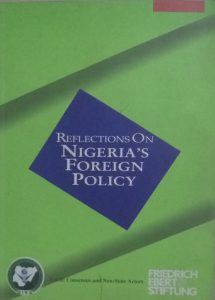
Flashback to a SIRA publication under his watch
Prof. Yaqub, in addition to being a Marxist scholar, specializes in comparative politics and is a theorist. He is a leading scholar in all his academic research areas in Nigeria. He has presented about forty seminar and conference papers, and public lectures. His published works number about ninety. Two of these were:
(1) ‘’Marxism and the End of History and the Last Man Ideology’’ published in 2010.
(2) “Neo-colonialism, Leadership and African Development’’ published in 2012.
From his record, he is a rounded scholar who is content being an academic. He was a Federal Government scholar between 1984 and 1989. From 1988 to 1989, he enjoyed the Dudley Seers Memorial Scholarship awarded to him by the Institute of Development Studies, University of Sussex, United Kingdom. Six years before then, he had enjoyed the Kwara State scholarship from 1978 to 1980. He had also won the Fulbright fellowship between 2010 and 2011, tenured at Wake Forest University, Winston-Salem, North Carolina, USA.
Professor Yaqub, who speaks four different languages, obtained his certificates from three continents: Africa, Europe and North America. He graduated from the Bayero University, Kano with a degree in Political Science in the first-class division in 1980, obtained his MSc from the University of Toronto, Canada, in 1983, and his PhD from the University of Sussex in the United Kingdom in 1990.
He became a full Professor in 1998 at the Usmanu Danfodiyo University, Sokoto, and retired from the service of the university in 2021 after putting in 23 years on the rank and upon attaining the mandatory retirement age of seventy years for Professors in Nigeria.
The subject of this tribute, Prof. Yaqub, is a well-travelled scholar who has been to several countries in pursuit of academic excellence, including the USA, UK, Canada, Saudi Araabia and some African countries on a countless occasions. While in these countries, he has formed the habit of going round the bookshops to buy latest books in his area of Political Science. He always wants to be as current as possible and to know the trends in the field of Political Science. Most seminal books on Comparative Politics and indeed global affairs adore his rich library
He belongs to many professional associations, such as the Social Science Academy of Nigeria, SSAN, Society for International Relations Awareness (SIRA), Nigerian Society for International Affairs (NSIA), and the Nigerian Political Science Association (NPSA).
Two of these associations are significant for this tribute, given our paths that have crossed on the platforms. He was the Chairman of the Society for International Relations Awareness, SIRA, for ten years. During this time, the structure of the Society was established, and more members were attracted to the Society, including the author of this tribute.
For more than four years, he had indicated interest in stepping down from the position, but because of one reason or another, he was prevailed upon to stay on until 2020. As the politics of succession was going on in the Society, my name was mentioned as a possible successor to him. He supported the idea but somewhere along the line, he was persuaded to change his mind because of the prospect of my leading the NPSA later. Indeed, it was from him that I first learned that I would not be because of the NPSA’s position. As the Chairman, he did his best for the Society.
Another association that he has been closely associated with is the NPSA which he joined in 1980 and once served as its Vice-President under Dr. Paul Izah, now Professor Paul Izah, from 1998 to 2003. Earlier, he was at the Badagry conference of the NPSA in 1992 and made a paper presentation.
In 2022, he featured in our flagship programme tagged NPSA Platform to discuss Nigeria’s democracy. His article on an assessment of the Presidential System in Nigeria was published in the resuscitated NPSA Monograph Number 2, 2023. He was at our Lokoja conference in 2024 where he made invaluable contribution to discussions during the business session. He also featured in a special session at the conference that was convened before the parallel sessions began. Prof. Yaqub was a resource person who spoke on the testy topics of literature review and theoretical framework at the NPSA’s Methodology Workshop for our female members in Anyigba, Kogi State, that was held in December, 2024.
He is a senior member of the NPSA who has been decorated by governments and sundry bodies for his meritorious services to humanity. For instance, he is an Officer of the Order of the Federal Republic (2008); Fellow, Nigerian Institute of International Affairs, NIIA, (2012); Fellow, Academy of International Affairs (2024); and among others.
At a more personal level, he helped me out on two occasions by offering admission placements to two of my children when he was the VC at the University of Abuja. He has remained a source of inspiration and guidance to me. Let me also made the disclosure here that I was his candidate for the Vice-Chancellorship of University of Abuja when he was leaving the seat before the politics of the appointment was taken out of his control apparently by the then Chairman of the Governing Council. Prof. Iya Abubakar.
As Prof. Yaqub turns 73, I, on behalf of the National Executive Committee of the NPSA, congratulate him and wish him well as he spends more years in retirement.
Happy birthday to you, Sir.
The author is the incumbent president, NPSA. Prof Nuhu Yaqub had the benefit of reading the tribute written and published (but not in Intervention) when he attained the age 73.

